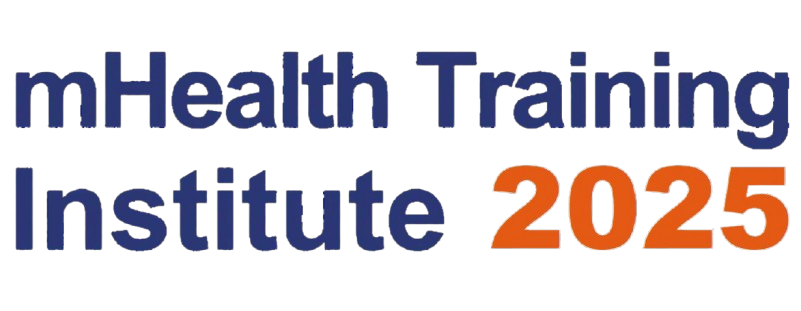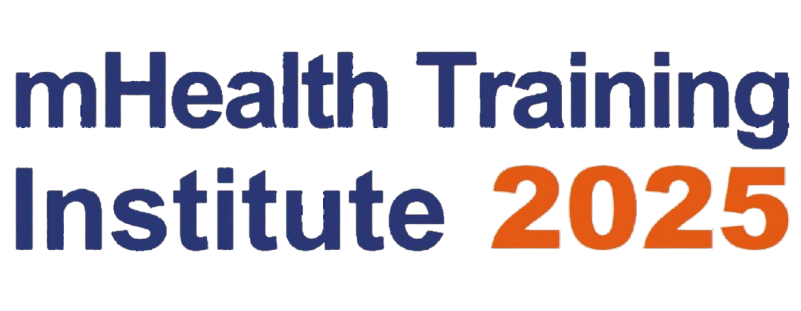2020 Faculty
Training the Next Generation
2020 Faculty
Program Director
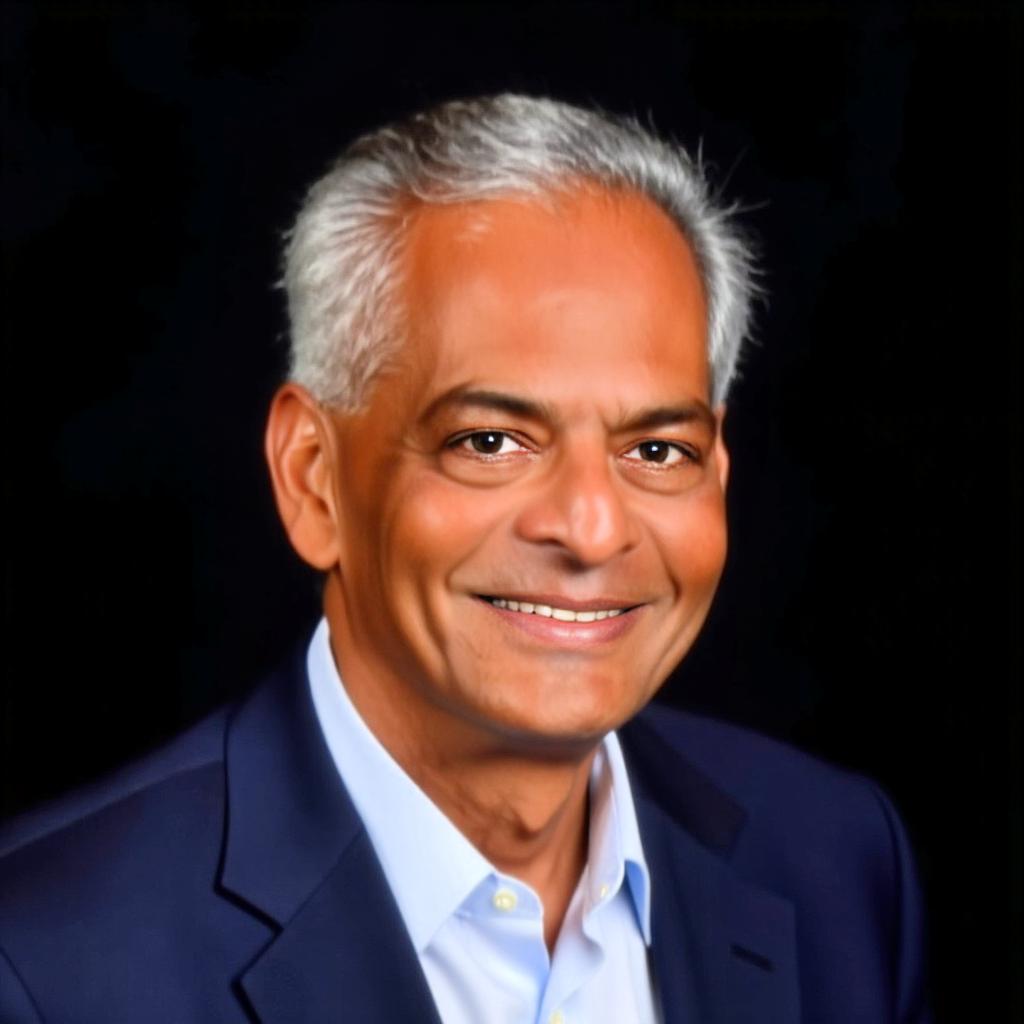
Vivek Shetty
UCLA

Vivek Shetty
UCLA
Principal Investigator, NIH Training Institutes for mHealth Methodologies (5P41EB028242-03)
Director - Training Core, The mHealth Center for Discovery, Optimization & Translation of Temporally-Precise Interventions (the mDOT Center)
Dr. Shetty is a Professor of Oral and Maxillofacial Surgery/Biomedical Engineering at the University of California, Los Angeles. A translational clinician-scientist, his research interests are driven by the health disparities that burden vulnerable populations (e.g., socioeconomically marginalized racial/ethnic minorities, uninsured, elderly). To help address the health inequities, he leads a transdisciplinary research program developing digital technologies that support equitable and universal access to health services and enhance the ability of health systems to deliver quality and affordable preventive care at population-level scale. A strong proponent of the public university’s role as an instrument of social good, he has served UCLA in multiple capacities including Academic Senate Chair, Assistant Vice Chancellor for Research, and member of the campus Council on Academic Personnel. Additionally, he leads national training programs (i.e., NIH-mHealth Training Institute, NIH-Mobile Sensor Data to Knowledge Center, mHealthHUB) dedicated to developing a national capacity of transdisciplinary researchers who will design and implement technology-enabled improvements in healthcare.
Director - Training Core, The mHealth Center for Discovery, Optimization & Translation of Temporally-Precise Interventions (the mDOT Center)
Dr. Shetty is a Professor of Oral and Maxillofacial Surgery/Biomedical Engineering at the University of California, Los Angeles. A translational clinician-scientist, his research interests are driven by the health disparities that burden vulnerable populations (e.g., socioeconomically marginalized racial/ethnic minorities, uninsured, elderly). To help address the health inequities, he leads a transdisciplinary research program developing digital technologies that support equitable and universal access to health services and enhance the ability of health systems to deliver quality and affordable preventive care at population-level scale. A strong proponent of the public university’s role as an instrument of social good, he has served UCLA in multiple capacities including Academic Senate Chair, Assistant Vice Chancellor for Research, and member of the campus Council on Academic Personnel. Additionally, he leads national training programs (i.e., NIH-mHealth Training Institute, NIH-Mobile Sensor Data to Knowledge Center, mHealthHUB) dedicated to developing a national capacity of transdisciplinary researchers who will design and implement technology-enabled improvements in healthcare.
- Email:vshetty@ucla.edu
Program Committee

Vivek Shetty
UCLA

Vivek Shetty
UCLA
Principal Investigator, NIH Training Institutes for mHealth Methodologies (5P41EB028242-03)
Director - Training Core, The mHealth Center for Discovery, Optimization & Translation of Temporally-Precise Interventions (the mDOT Center)
Dr. Shetty is a Professor of Oral and Maxillofacial Surgery/Biomedical Engineering at the University of California, Los Angeles. A translational clinician-scientist, his research interests are driven by the health disparities that burden vulnerable populations (e.g., socioeconomically marginalized racial/ethnic minorities, uninsured, elderly). To help address the health inequities, he leads a transdisciplinary research program developing digital technologies that support equitable and universal access to health services and enhance the ability of health systems to deliver quality and affordable preventive care at population-level scale. A strong proponent of the public university’s role as an instrument of social good, he has served UCLA in multiple capacities including Academic Senate Chair, Assistant Vice Chancellor for Research, and member of the campus Council on Academic Personnel. Additionally, he leads national training programs (i.e., NIH-mHealth Training Institute, NIH-Mobile Sensor Data to Knowledge Center, mHealthHUB) dedicated to developing a national capacity of transdisciplinary researchers who will design and implement technology-enabled improvements in healthcare.
Director - Training Core, The mHealth Center for Discovery, Optimization & Translation of Temporally-Precise Interventions (the mDOT Center)
Dr. Shetty is a Professor of Oral and Maxillofacial Surgery/Biomedical Engineering at the University of California, Los Angeles. A translational clinician-scientist, his research interests are driven by the health disparities that burden vulnerable populations (e.g., socioeconomically marginalized racial/ethnic minorities, uninsured, elderly). To help address the health inequities, he leads a transdisciplinary research program developing digital technologies that support equitable and universal access to health services and enhance the ability of health systems to deliver quality and affordable preventive care at population-level scale. A strong proponent of the public university’s role as an instrument of social good, he has served UCLA in multiple capacities including Academic Senate Chair, Assistant Vice Chancellor for Research, and member of the campus Council on Academic Personnel. Additionally, he leads national training programs (i.e., NIH-mHealth Training Institute, NIH-Mobile Sensor Data to Knowledge Center, mHealthHUB) dedicated to developing a national capacity of transdisciplinary researchers who will design and implement technology-enabled improvements in healthcare.
- Email:vshetty@ucla.edu

Donna Spruijt-Metz
USC
Director, mHealth Collaboratory at the Center for Economic & Social Research
Professor of Research, Pyschology & Preventive Medicine
Donna Spruijt-Metz is Director of the USC mHealth Collaboratory at the University of Southern California’s Center for Economic and Social Research, and Professor of Research in Psychology and Preventive Medicine. Her research focuses on childhood obesity and mobile health technologies. In 2015, she received the Obesity Society’s eHealth/mHealth Pioneer Award for Excellence in the Field. Her main interests include using mobile technologies to develop data sets that combine sensor and self-report data that is continuous, temporally rich, contextualized. Using this data along with innovative modeling techniques, she wants to develop dynamic, contextualized mathematical models of health-related behavior. She was one of the first to undertake a just-in-time, adaptive intervention (JITAI) in youth, and envisions most or all interventions being JITAI in the future. She is PI of Virtual Sprouts, a virtual, multiplatform gardening game designed to change dietary knowledge and behavior and prevent obesity in minority youth. She also leads a new project, the Monitoring & Modeling Family Eating Dynamics (M2FED) project, funded by NSF She led an NSF/EU/NIH-funded workshop in Brussels on building new computationally-enabled theoretical models to support health behavior change and maintenance in 2012. This workshop led to several publications, and a host of new collaborations. In September, she led a follow-up NSF-funded international workshop in London. Her work meshes 21st century technologies with transdisciplinary metabolic, behavioral and environmental research in order to facilitate the development of dynamic, personalized, contextualized behavioral interventions that can be adapted on the fly.
Professor of Research, Pyschology & Preventive Medicine
Donna Spruijt-Metz is Director of the USC mHealth Collaboratory at the University of Southern California’s Center for Economic and Social Research, and Professor of Research in Psychology and Preventive Medicine. Her research focuses on childhood obesity and mobile health technologies. In 2015, she received the Obesity Society’s eHealth/mHealth Pioneer Award for Excellence in the Field. Her main interests include using mobile technologies to develop data sets that combine sensor and self-report data that is continuous, temporally rich, contextualized. Using this data along with innovative modeling techniques, she wants to develop dynamic, contextualized mathematical models of health-related behavior. She was one of the first to undertake a just-in-time, adaptive intervention (JITAI) in youth, and envisions most or all interventions being JITAI in the future. She is PI of Virtual Sprouts, a virtual, multiplatform gardening game designed to change dietary knowledge and behavior and prevent obesity in minority youth. She also leads a new project, the Monitoring & Modeling Family Eating Dynamics (M2FED) project, funded by NSF She led an NSF/EU/NIH-funded workshop in Brussels on building new computationally-enabled theoretical models to support health behavior change and maintenance in 2012. This workshop led to several publications, and a host of new collaborations. In September, she led a follow-up NSF-funded international workshop in London. Her work meshes 21st century technologies with transdisciplinary metabolic, behavioral and environmental research in order to facilitate the development of dynamic, personalized, contextualized behavioral interventions that can be adapted on the fly.
- Email:dmetz@usc.edu

Santosh Kumar
University of Memphis

Santosh Kumar
University of Memphis
Professor of Computer Science, University of Memphis
Director - The mHealth Center for Discovery, Optimization & Translation of Temporally-Precise Interventions (the mDOT Center)
Dr. Santosh Kumar is the Lillian and Morrie Moss Chair of Excellence Professor in the Department of Computer Science at the University of Memphis and the Director of the NIH Center of Excellence for Mobile Sensor Data-to-Knowledge (MD2K), which is headquartered at the University of Memphis. He received his Ph.D. in Computer Science and Engineering from The Ohio State University in 2006, where his dissertation won a presidential fellowship. In 2010, Popular Science magazine named him one of America’s ten most brilliant scientists under the age of 38 (called “Brilliant Ten”). In 2011, he chaired the “mHealth Evidence” meeting jointly organized by NIH, NSF, RWJF, and McKesson Foundation to establish evidence requirements for mHealth. In 2013, he was invited to meet with the NIH Director to advise him on NIH efforts in the area of mHealth and was invited to the White House to give a talk on the future of Biosensors. In 2014, he co-organized and co-chaired the NSF-NIH Workshop on Computing Challenges in Future Mobile Health (mHealth) Systems and Applications. He holds the distinction of receiving the largest grants from both NIH ($10.8 million in 2014) and NSF ($4 million In 2016) in the history of the University of Memphis. Santosh’s research seeks to define new frontiers in the discipline of mobile health (mHealth). His decade-long work has involved collecting mobile sensor data from over 100 human volunteers for 25,000+ hours in their natural environments as part of various scientific user studies. His collaborative research involves more than twenty faculty members from fifteen institutions, spanning a variety of disciplines, making his projects highly transdisciplinary.
Director - The mHealth Center for Discovery, Optimization & Translation of Temporally-Precise Interventions (the mDOT Center)
Dr. Santosh Kumar is the Lillian and Morrie Moss Chair of Excellence Professor in the Department of Computer Science at the University of Memphis and the Director of the NIH Center of Excellence for Mobile Sensor Data-to-Knowledge (MD2K), which is headquartered at the University of Memphis. He received his Ph.D. in Computer Science and Engineering from The Ohio State University in 2006, where his dissertation won a presidential fellowship. In 2010, Popular Science magazine named him one of America’s ten most brilliant scientists under the age of 38 (called “Brilliant Ten”). In 2011, he chaired the “mHealth Evidence” meeting jointly organized by NIH, NSF, RWJF, and McKesson Foundation to establish evidence requirements for mHealth. In 2013, he was invited to meet with the NIH Director to advise him on NIH efforts in the area of mHealth and was invited to the White House to give a talk on the future of Biosensors. In 2014, he co-organized and co-chaired the NSF-NIH Workshop on Computing Challenges in Future Mobile Health (mHealth) Systems and Applications. He holds the distinction of receiving the largest grants from both NIH ($10.8 million in 2014) and NSF ($4 million In 2016) in the history of the University of Memphis. Santosh’s research seeks to define new frontiers in the discipline of mobile health (mHealth). His decade-long work has involved collecting mobile sensor data from over 100 human volunteers for 25,000+ hours in their natural environments as part of various scientific user studies. His collaborative research involves more than twenty faculty members from fifteen institutions, spanning a variety of disciplines, making his projects highly transdisciplinary.

Bonnie Spring
Northwestern University

Bonnie Spring
Northwestern University
Professor of Preventive Medicine, Psychology, Psychiatry and Public Health
Northwestern University Feinberg School of Medicine
Dr. Spring is a clinical health psychologist and Professor of Preventive Medicine, Psychology and Psychiatry at Northwestern University and Director of its Center for Behavior and Health - Institute for Public Health and Medicine. She studies technology-assisted interventions to promote healthy change in multiple chronic disease risk behaviors (e.g., poor quality diet, physical inactivity) in research that has been continuously NIH-funded for more than 30 years. Her ongoing mHealth trials aim to optimize dynamic treatment for obesity, use sensor data to trigger just-in-time intervention that pre-empts relapse to smoking, and characterize behavioral features that predict maintenance of healthy diet and physical activity changes. A past president of the Society for Behavioral Medicine (SBM), she received SBM’s Distinguished Research Mentor, Research to Practice Translation, Outstanding Optimization Research, and Distinguished Leadership awards, and is founding editor of its journal, Translational Behavioral Medicine: Practice, Policy, Research. A winner of The Obesity Society’s e-Health Pioneer Award, she previously chaired the American Heart Association’s Behavior Change Committee, the American Psychological Association’s Board of Scientific Affairs, and the NIH Psychosocial Risk and Disease Prevention standing study section.
Northwestern University Feinberg School of Medicine
Dr. Spring is a clinical health psychologist and Professor of Preventive Medicine, Psychology and Psychiatry at Northwestern University and Director of its Center for Behavior and Health - Institute for Public Health and Medicine. She studies technology-assisted interventions to promote healthy change in multiple chronic disease risk behaviors (e.g., poor quality diet, physical inactivity) in research that has been continuously NIH-funded for more than 30 years. Her ongoing mHealth trials aim to optimize dynamic treatment for obesity, use sensor data to trigger just-in-time intervention that pre-empts relapse to smoking, and characterize behavioral features that predict maintenance of healthy diet and physical activity changes. A past president of the Society for Behavioral Medicine (SBM), she received SBM’s Distinguished Research Mentor, Research to Practice Translation, Outstanding Optimization Research, and Distinguished Leadership awards, and is founding editor of its journal, Translational Behavioral Medicine: Practice, Policy, Research. A winner of The Obesity Society’s e-Health Pioneer Award, she previously chaired the American Heart Association’s Behavior Change Committee, the American Psychological Association’s Board of Scientific Affairs, and the NIH Psychosocial Risk and Disease Prevention standing study section.
- Email:bspring@northwestern.edu
Faculty

Audie Atienza
NIH / NCATS

Audie Atienza
NIH / NCATS
Senior Program Officer, National Center for Advancing Translational Science (NCATS), National Institutes of Health (NIH)
Dr. Audie Atienza is a senior program officer at the National Center for Advancing Translational Science (NCATS), National Institutes of Health (NIH). Prior to joining NCATS, Dr. Atienza served as a senior program officer at the National Institute on Aging (NIA) and National Cancer Institute (NCI). He previously worked on special assignments to the NIH Office of the Director and to the HHS Immediate Office of the Secretary as a senior advisor. He has collaborated with the White House (OSTP, VPOTUS, FLOTUS), Office of the U.S. Surgeon General, Office of the National Coordinator for Health IT, and Office of the Chief Privacy Officer. Dr. Atienza has contributed to various NIH-wide research efforts including the NIH Roadmap Initiative; NIH Genes, Environment and Health Initiative (GEI); mHealth Summit; NIH Big Data to Knowledge (BD2K) Initiative; and the NIH REsearching COVID to Enhance Recovery (RECOVER) Initiative.
Dr. Audie Atienza is a senior program officer at the National Center for Advancing Translational Science (NCATS), National Institutes of Health (NIH). Prior to joining NCATS, Dr. Atienza served as a senior program officer at the National Institute on Aging (NIA) and National Cancer Institute (NCI). He previously worked on special assignments to the NIH Office of the Director and to the HHS Immediate Office of the Secretary as a senior advisor. He has collaborated with the White House (OSTP, VPOTUS, FLOTUS), Office of the U.S. Surgeon General, Office of the National Coordinator for Health IT, and Office of the Chief Privacy Officer. Dr. Atienza has contributed to various NIH-wide research efforts including the NIH Roadmap Initiative; NIH Genes, Environment and Health Initiative (GEI); mHealth Summit; NIH Big Data to Knowledge (BD2K) Initiative; and the NIH REsearching COVID to Enhance Recovery (RECOVER) Initiative.
- Email:audie.atienza@nih.gov
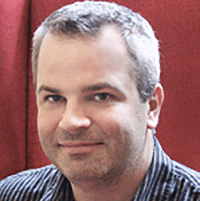
Richard Conroy
NIH / OSC

Richard Conroy
NIH / OSC
Program Leader, Office of Strategic Coordination, Common Fund, National Institutes of Health (NIH)
Richard Conroy, Ph.D., M.B.A., joined the NIH Office of Strategic Coordination in 2017 and leads a number of trans-NIH Common Fund programs, including HuBMAP and SMaHT, as well as participating in a number of initiatives including Post-Acute Sequelae of COVID (PASC) and RADx-Tech. Prior to joining the Office, Richard was the Director of the Division of Applied Science and Technology at the National Institute of Biomedical Imaging and Bioengineering (NIBIB), where we oversaw the institute’s portfolio of programs in biomedical imaging. Richard received his Ph.D. from the University of St. Andrews and MBA from the University of Maryland Global Campus.
Richard Conroy, Ph.D., M.B.A., joined the NIH Office of Strategic Coordination in 2017 and leads a number of trans-NIH Common Fund programs, including HuBMAP and SMaHT, as well as participating in a number of initiatives including Post-Acute Sequelae of COVID (PASC) and RADx-Tech. Prior to joining the Office, Richard was the Director of the Division of Applied Science and Technology at the National Institute of Biomedical Imaging and Bioengineering (NIBIB), where we oversaw the institute’s portfolio of programs in biomedical imaging. Richard received his Ph.D. from the University of St. Andrews and MBA from the University of Maryland Global Campus.
- Email:richard.conroy@nih.gov
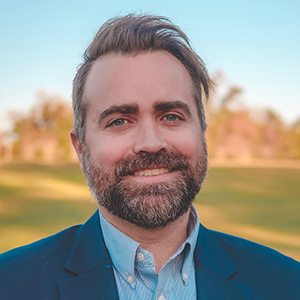
Cody Diefenthaler
Florida State University

Cody Diefenthaler
Florida State University
Manager of Interactive Development, Florida Center for Interactive Media
Cody Diefenthaler is Manager of Interactive Development at the Florida Center for Interactive Media at Florida State University. He has spent over a decade learning and exploring emerging technologies and techniques for creating intuitive, practical solutions for public sector e-learning needs, with a specialization in game-based experiences. He partners with researchers to operationalize their expertise into immersive digital applications and systems that satisfy the goals of their studies. He currently manages the technology platform for Harvard's Reach Every Reader K-2 Screener, an empirically-derived literacy assessment game. Additionally, he is working in partnership with the University of Michigan, Vanderbilt, UCLA, and within the FSU community to design, develop, and deliver various game-based and research-backed digital applications.
Cody Diefenthaler is Manager of Interactive Development at the Florida Center for Interactive Media at Florida State University. He has spent over a decade learning and exploring emerging technologies and techniques for creating intuitive, practical solutions for public sector e-learning needs, with a specialization in game-based experiences. He partners with researchers to operationalize their expertise into immersive digital applications and systems that satisfy the goals of their studies. He currently manages the technology platform for Harvard's Reach Every Reader K-2 Screener, an empirically-derived literacy assessment game. Additionally, he is working in partnership with the University of Michigan, Vanderbilt, UCLA, and within the FSU community to design, develop, and deliver various game-based and research-backed digital applications.
- Email:cody@fcim.org

David Elashoff
UCLA

David Elashoff
UCLA
Professor, Medicine & Biostatistics
Dr. David Elashoff is a Professor of Medicine, Biostatistics and Computational Medicine at UCLA and Director of the Department of Medicine Statistics Core. He serves as Leader for the Biostatistics, Epidemiology and Research Design Program (BERD) for the UCLA CTSI. His main areas of statistical research are in developing statistical methods for the analysis of high throughput genomic and proteomic data. He has extensive collaborative experience on a variety of basic science, clinical research, and clinical trials projects, including those with members of the School of Dentistry, Department of Medicine, Jonsson Comprehensive Cancer Center (JCCC), School of Nursing, and investigators at the CTSI partner institutions. As an investigator on the BERD, he collaborates with program leaders to implement the CTSI-wide network of biostatistics consulting services and develop joint research in genomics, proteomics, bioinformatics, and clinical correlates. Dr. Elashoff has extensive experience collaborating on the design and analysis of biomarker discovery and validation studies. He also has experience with working with high dimensional data (omices, EHR, mHealth).
Dr. David Elashoff is a Professor of Medicine, Biostatistics and Computational Medicine at UCLA and Director of the Department of Medicine Statistics Core. He serves as Leader for the Biostatistics, Epidemiology and Research Design Program (BERD) for the UCLA CTSI. His main areas of statistical research are in developing statistical methods for the analysis of high throughput genomic and proteomic data. He has extensive collaborative experience on a variety of basic science, clinical research, and clinical trials projects, including those with members of the School of Dentistry, Department of Medicine, Jonsson Comprehensive Cancer Center (JCCC), School of Nursing, and investigators at the CTSI partner institutions. As an investigator on the BERD, he collaborates with program leaders to implement the CTSI-wide network of biostatistics consulting services and develop joint research in genomics, proteomics, bioinformatics, and clinical correlates. Dr. Elashoff has extensive experience collaborating on the design and analysis of biomarker discovery and validation studies. He also has experience with working with high dimensional data (omices, EHR, mHealth).
- Email:dae@ucla.edu
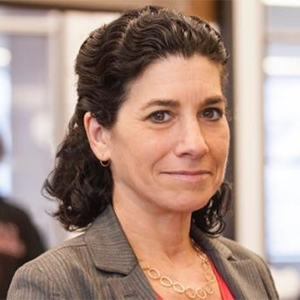
Deborah Estrin
Cornell Tech

Deborah Estrin
Cornell Tech
Associate Dean for Impact
Deborah Estrin is a Professor of Computer Science at Cornell Tech in New York City where she founded the Jacobs Institute's Health Tech Hub. She holds The Robert V. Tishman Founder's Chair and serves as the Associate Dean for Impact. Her research interests are at the intersection of user-centric data applications, personalization, and privacy (TEDMED). Estrin co-founded the non-profit startup, Open mHealth and has served on several scientific advisory boards for early stage mobile health startups. She is currently serving as a part-time Amazon Scholar.
Before joining Cornell University Estrin was the Founding Director of the NSF Center for Embedded Networked Sensing (CENS) at UCLA; pioneering the development of mobile and wireless systems to collect and analyze real time data about the physical world.
Deborah Estrin is a Professor of Computer Science at Cornell Tech in New York City where she founded the Jacobs Institute's Health Tech Hub. She holds The Robert V. Tishman Founder's Chair and serves as the Associate Dean for Impact. Her research interests are at the intersection of user-centric data applications, personalization, and privacy (TEDMED). Estrin co-founded the non-profit startup, Open mHealth and has served on several scientific advisory boards for early stage mobile health startups. She is currently serving as a part-time Amazon Scholar.
Before joining Cornell University Estrin was the Founding Director of the NSF Center for Embedded Networked Sensing (CENS) at UCLA; pioneering the development of mobile and wireless systems to collect and analyze real time data about the physical world.
- Email:destrin@cs.cornell.edu

Craig Fox
UCLA

Craig Fox
UCLA
Professor of Management
Professor of Psychology and Medicine
Craig Fox is Harold Williams Professor of Management and Professor of Psychology and Medicine at UCLA. He is also chair and co-founder of the Behavioral Decision Making Area at the UCLA Anderson School. Dr. Fox’s research investigates behavior under risk, uncertainty, and ambiguity, using a combination of methods that include surveys, laboratory and field experiments, analysis of archival data, and brain imaging. He also applies insights from behavioral economics and social psychology to improve health and financial decisions. Professor Fox has taught courses at the MBA, Executive, and Ph.D. levels on decision making, strategy, negotiation, and dynamic management. He has been at UCLA since 2003, and has also taught courses at Stanford, Northwestern, Duke, and Columbia universities. Professor Fox is founding co-editor of the journal Behavioral Science & Policy and co-President of the Behavioral Science & Policy Association. He is also former President of the Society for Judgment and Decision Making. He is a Fellow of the American Psychological Society
Professor of Psychology and Medicine
Craig Fox is Harold Williams Professor of Management and Professor of Psychology and Medicine at UCLA. He is also chair and co-founder of the Behavioral Decision Making Area at the UCLA Anderson School. Dr. Fox’s research investigates behavior under risk, uncertainty, and ambiguity, using a combination of methods that include surveys, laboratory and field experiments, analysis of archival data, and brain imaging. He also applies insights from behavioral economics and social psychology to improve health and financial decisions. Professor Fox has taught courses at the MBA, Executive, and Ph.D. levels on decision making, strategy, negotiation, and dynamic management. He has been at UCLA since 2003, and has also taught courses at Stanford, Northwestern, Duke, and Columbia universities. Professor Fox is founding co-editor of the journal Behavioral Science & Policy and co-President of the Behavioral Science & Policy Association. He is also former President of the Society for Judgment and Decision Making. He is a Fellow of the American Psychological Society

Gillian Hayes
UC-Irvine

Gillian Hayes
UC-Irvine
Vice Provost for Graduate Education
Dean of the Graduate Division
Gillian Hayes is an Associate Professor and the Robert A. and Barbara L. Kleist Chair in Informatics in the School of Information and Computer Sciences and in the School of Education and School of Medicine at UC Irvine. Her research interests are in human-computer interaction, ubiquitous computing, assistive and educational technologies, and health informatics. She designs, develops, deploys, and evaluates technologies to empower people to use collected data to address real human needs in sensitive and ethically responsible ways. She directs the social and technological action research (STAR) group. She is the Director of Technology Research at the Center for Autism and Neurodevelopmental Disorders and the Faculty Director for Civic and Community Engagement at UCI.
Dean of the Graduate Division
Gillian Hayes is an Associate Professor and the Robert A. and Barbara L. Kleist Chair in Informatics in the School of Information and Computer Sciences and in the School of Education and School of Medicine at UC Irvine. Her research interests are in human-computer interaction, ubiquitous computing, assistive and educational technologies, and health informatics. She designs, develops, deploys, and evaluates technologies to empower people to use collected data to address real human needs in sensitive and ethically responsible ways. She directs the social and technological action research (STAR) group. She is the Director of Technology Research at the Center for Autism and Neurodevelopmental Disorders and the Faculty Director for Civic and Community Engagement at UCI.
- Email:hayesg@uci.edu
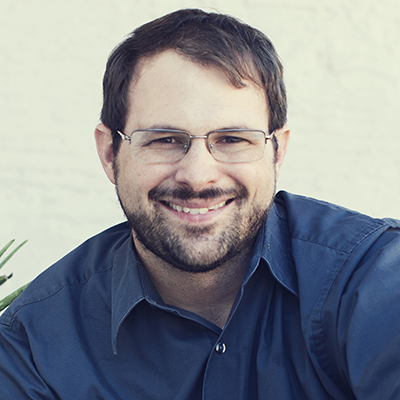
Eric Hekler
UCSD

Eric Hekler
UCSD
Professor, Department of Family Medicine & Public Health
Director, Center for Wireless & Population Health Systems, Faculty, Design Lab & Qualcomm Insitute
Dr. Eric Hekler, is a Professor in the Department of Family Medicine & Public Health in the University of California, San Diego (UCSD), the Director of the Center for Wireless & Population Health Systems within the Qualcomm Institute at UCSD, and the faculty member of the Design Lab at UCSD. His research is broadly focused on advancing methods in the design, creation, optimization, evaluation, and reuse (scaling up and out) of digital health technologies. His goal is to contribute towards a form of applied science that facilitates equitable participation, contribution, and benefit for all. There are three interdependent themes to his research, advancing: 1) methods for optimizing adaptive behavioral interventions; 2) methods and processes to help people and communities help themselves: and 3) research pipelines to achieve efficient, rigorous, context-relevant solutions for complex problems, a domain he and his colleagues have called agile science. He has over 100 publications that span the many disciplines he contributes and has an active federal and foundation funding. He is recognized internationally as an expert in the area of digital health.
Director, Center for Wireless & Population Health Systems, Faculty, Design Lab & Qualcomm Insitute
Dr. Eric Hekler, is a Professor in the Department of Family Medicine & Public Health in the University of California, San Diego (UCSD), the Director of the Center for Wireless & Population Health Systems within the Qualcomm Institute at UCSD, and the faculty member of the Design Lab at UCSD. His research is broadly focused on advancing methods in the design, creation, optimization, evaluation, and reuse (scaling up and out) of digital health technologies. His goal is to contribute towards a form of applied science that facilitates equitable participation, contribution, and benefit for all. There are three interdependent themes to his research, advancing: 1) methods for optimizing adaptive behavioral interventions; 2) methods and processes to help people and communities help themselves: and 3) research pipelines to achieve efficient, rigorous, context-relevant solutions for complex problems, a domain he and his colleagues have called agile science. He has over 100 publications that span the many disciplines he contributes and has an active federal and foundation funding. He is recognized internationally as an expert in the area of digital health.
- Email:ehekler@eng.ucsd.edu

Timothy Hnat
MD2K

Timothy Hnat
MD2K
Chief Software Architect, MD2K Center of Excellence, University of Memphis
Dr. Hnat is Chief Software Architect for the MD2K Center. He previously served as Assistant Professor of Computer Science at the University of Memphis. His research interests cover several areas of the construction and evaluation of distributed systems, including compilers, programming languages, networking, and wireless sensor networks. He seeks to harness the potential of distributed systems to affect and interact with the physical world to address mHealth issues.
Dr. Hnat is Chief Software Architect for the MD2K Center. He previously served as Assistant Professor of Computer Science at the University of Memphis. His research interests cover several areas of the construction and evaluation of distributed systems, including compilers, programming languages, networking, and wireless sensor networks. He seeks to harness the potential of distributed systems to affect and interact with the physical world to address mHealth issues.
- Email:twhnat@memphis.edu
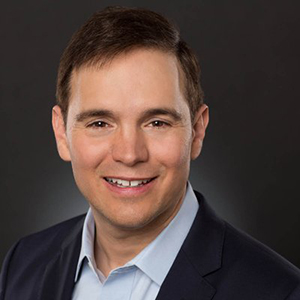
Joel Kehle
UCLA

Joel Kehle
UCLA
Business Development Officer, UCLA Technology Development Group
Joel Kehle joined UCLA TDG in August 2017. In his role as Technology Transfer Officer, Joel manages a portfolio of database, algorithm, artificial intelligence, bioinformatics, and other types of computer science technologies. He has over 20 years of industry experience in information technology and software development. Joel spent over 10 years at Qualcomm focused on cloud computing, enterprise architecture, infrastructure automation, and middleware software. Additionally, he served as Vice President, Technology for multiple startup companies incubated at Idealab in Los Angeles. Joel earned his Bachelor of Science in Computer Science from the Massachusetts Institute of Technology (MIT).
Joel Kehle joined UCLA TDG in August 2017. In his role as Technology Transfer Officer, Joel manages a portfolio of database, algorithm, artificial intelligence, bioinformatics, and other types of computer science technologies. He has over 20 years of industry experience in information technology and software development. Joel spent over 10 years at Qualcomm focused on cloud computing, enterprise architecture, infrastructure automation, and middleware software. Additionally, he served as Vice President, Technology for multiple startup companies incubated at Idealab in Los Angeles. Joel earned his Bachelor of Science in Computer Science from the Massachusetts Institute of Technology (MIT).
- Email:joel.kehle@tdg.ucla.edu
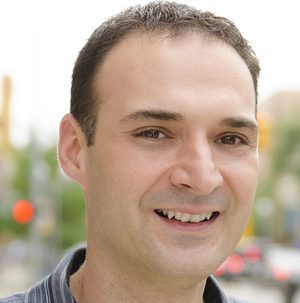
Predrag Klasnja
University of Michigan

Predrag Klasnja
University of Michigan
Associate Professor of Information, School of Information
Associate Professor of Health Behavior & Health Education, School of Public Health
Predrag (Pedja) Klasnja is an associate professor at the School of Information and holds a joint appointment with the Department of Health Behavior and Health Education in the School of Public Health at the University of Michigan. He is a member of the Michigan Interactive & Social Computing group, an interdisciplinary group of researchers interested in human-computer interaction and social computing. Dr. Klasnja received a PhD in information science from the Information School at the University of Washington. He then served as a National Library of Medicine Postdoctoral Fellow in the Division of Biomedical and Health Informatics at the University of Washington. Dr. Klasnja joined the SI faculty in July 2012, and his areas of interest include human-computer interaction, health informatics, and mobile computing.
Associate Professor of Health Behavior & Health Education, School of Public Health
Predrag (Pedja) Klasnja is an associate professor at the School of Information and holds a joint appointment with the Department of Health Behavior and Health Education in the School of Public Health at the University of Michigan. He is a member of the Michigan Interactive & Social Computing group, an interdisciplinary group of researchers interested in human-computer interaction and social computing. Dr. Klasnja received a PhD in information science from the Information School at the University of Washington. He then served as a National Library of Medicine Postdoctoral Fellow in the Division of Biomedical and Health Informatics at the University of Washington. Dr. Klasnja joined the SI faculty in July 2012, and his areas of interest include human-computer interaction, health informatics, and mobile computing.
- Email:klasnja@umich.edu

Benjamin Marlin
UMASS Amherst

Benjamin Marlin
UMASS Amherst
Associate Professor of Information & Computer Sciences
Benjamin M. Marlin joined the College of Information and Computer Sciences at the University of Massachusetts Amherst in 2011. His current research centers on the development of customized probabilistic models and algorithms for time series with applications to the analysis of electronic health records and mobile health data. His recent work includes probabilistic models for analyzing wireless ECG data, detection of cocaine use from wireless ECG, hierarchical activity recognition from on-body sensor data with applications to smoking and eating detection, and methods for mitigating lab-to-field generalization loss in mobile health studies. Marlin is a 2014 NSF CAREER award recipient. His research has also been supported by the National Institutes of Health, the Patient-Centered Outcomes Research Institute, and the US Army Research Laboratory. Prior to joining UMass Amherst, Marlin was a fellow of the Pacific Institute for the Mathematical Sciences and the Killam Trusts at the University of British Columbia. He completed his PhD in machine learning in the Department of Computer Science at the University of Toronto.
Benjamin M. Marlin joined the College of Information and Computer Sciences at the University of Massachusetts Amherst in 2011. His current research centers on the development of customized probabilistic models and algorithms for time series with applications to the analysis of electronic health records and mobile health data. His recent work includes probabilistic models for analyzing wireless ECG data, detection of cocaine use from wireless ECG, hierarchical activity recognition from on-body sensor data with applications to smoking and eating detection, and methods for mitigating lab-to-field generalization loss in mobile health studies. Marlin is a 2014 NSF CAREER award recipient. His research has also been supported by the National Institutes of Health, the Patient-Centered Outcomes Research Institute, and the US Army Research Laboratory. Prior to joining UMass Amherst, Marlin was a fellow of the Pacific Institute for the Mathematical Sciences and the Killam Trusts at the University of British Columbia. He completed his PhD in machine learning in the Department of Computer Science at the University of Toronto.
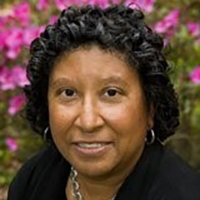
Vickie Mays
UCLA

Vickie Mays
UCLA
Professor, Director of Center on Minority Health Disparities
Vickie Mays is a Professor in the Department of Psychology and Director of the UCLA Center on Research, Education, Training and Strategic Communication on Minority Health Disparities (www.MinorityHealthDisparities.org). Professor Mays' research primarily focuses on the mental and physical health disparities affecting racial and ethnic minority populations. She has a long history of research and policy development in the area of contextual factors that surrounding HIV/AIDS in racial and ethnic minorities. Her mental health research examines availability, access and quality of mental health services for racial, ethnic and sexual minorities. She is the Co-PI of the California Quality of Life Survey, a population based study of over 2,200 Californians on the prevalence of mental health disorders and the contextual factors associated with those disorders. She has received a number of awards including one for her lifetime research on women and HIV from AMFAR, a Women and Leadership Award from the American Psychological Association and several Distinguished Contributions for Research awards.
Vickie Mays is a Professor in the Department of Psychology and Director of the UCLA Center on Research, Education, Training and Strategic Communication on Minority Health Disparities (www.MinorityHealthDisparities.org). Professor Mays' research primarily focuses on the mental and physical health disparities affecting racial and ethnic minority populations. She has a long history of research and policy development in the area of contextual factors that surrounding HIV/AIDS in racial and ethnic minorities. Her mental health research examines availability, access and quality of mental health services for racial, ethnic and sexual minorities. She is the Co-PI of the California Quality of Life Survey, a population based study of over 2,200 Californians on the prevalence of mental health disorders and the contextual factors associated with those disorders. She has received a number of awards including one for her lifetime research on women and HIV from AMFAR, a Women and Leadership Award from the American Psychological Association and several Distinguished Contributions for Research awards.
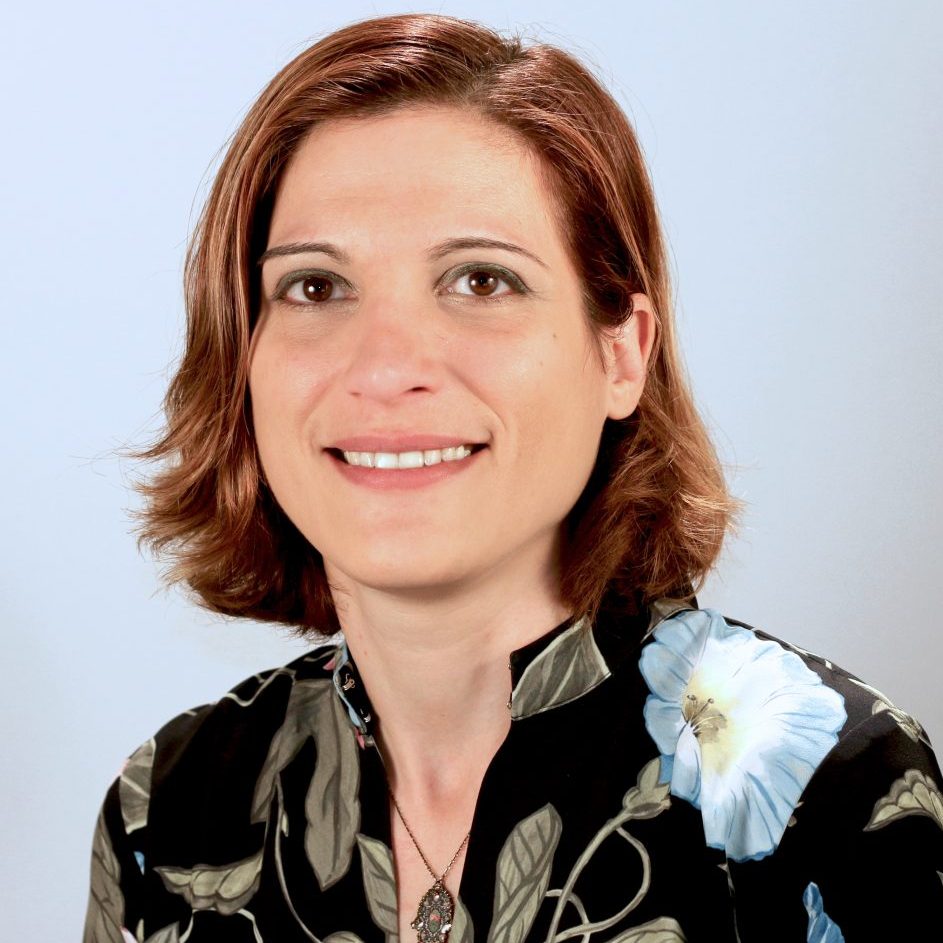
Inbal Nahum-Shani
University of Michigan

Inbal Nahum-Shani
University of Michigan
Associate Professor, Institute for Social Research
Inbal (Billie) Nahum-Shani is an Associate Professor at the Institute for Social Research and a co-director of the d3lab (Data Science for Dynamic intervention Decision-making lab) at the University of Michigan. Her research focuses on conceptual and methodological issues relating to building effective Adaptive Interventions—a treatment design in which ongoing information from the person is used to individualize the type/dose/modality of support (or treatment); and just-in-time adaptive interventions (JITAIs) —a special form of adaptive interventions in which mobile devices are used to provide support in a timely and ecological manner. Of particular interest are JITAIs aiming to engage participants in treatment. Much of her research focuses on developing methodologies relating to factorial designs, sequential multiple assignment randomized trials (SMARTs) and micro-randomized trials (MRTs).
Inbal (Billie) Nahum-Shani is an Associate Professor at the Institute for Social Research and a co-director of the d3lab (Data Science for Dynamic intervention Decision-making lab) at the University of Michigan. Her research focuses on conceptual and methodological issues relating to building effective Adaptive Interventions—a treatment design in which ongoing information from the person is used to individualize the type/dose/modality of support (or treatment); and just-in-time adaptive interventions (JITAIs) —a special form of adaptive interventions in which mobile devices are used to provide support in a timely and ecological manner. Of particular interest are JITAIs aiming to engage participants in treatment. Much of her research focuses on developing methodologies relating to factorial designs, sequential multiple assignment randomized trials (SMARTs) and micro-randomized trials (MRTs).
- Email:inbal@umich.edu

Camille Nebeker
UCSD

Camille Nebeker
UCSD
Associate Professor, UC San Diego Design Lab & Wertheim School of Public Health
Camille Nebeker, EdD, MS, is an Associate Professor with appointments with the UC San Diego Design Lab and the Wertheim School of Public Health. She co-founded and directs the ReCODE Health center, which provides education and consultation services to guide ethical practices in technology-supported health research. Dr. Nebeker applies a human centered design approach to shape ethical research practices (e.g., risk assessment, informed consent, return of results), which has led to development of decision support tools (see: Digital Health Checklist and Framework and Connected and Open Research Ethics platform). She serves as a member of the World Health Organization Digital Health Roster of Experts, American Association for the Advancement of Science Committee on Scientific Freedom and Responsibility, IEEE Organizational Governance of AI Working Group and the Society of Behavioral Medicine Digital Health Council. Dr. Nebeker’s research has received support from federal, foundation and industry sources including the NSF, NIH, Office of Research Integrity, RWJF and IBM. Publications related to her work are accessible via: https://escholarship.org/uc/recodehealth_publications.
Camille Nebeker, EdD, MS, is an Associate Professor with appointments with the UC San Diego Design Lab and the Wertheim School of Public Health. She co-founded and directs the ReCODE Health center, which provides education and consultation services to guide ethical practices in technology-supported health research. Dr. Nebeker applies a human centered design approach to shape ethical research practices (e.g., risk assessment, informed consent, return of results), which has led to development of decision support tools (see: Digital Health Checklist and Framework and Connected and Open Research Ethics platform). She serves as a member of the World Health Organization Digital Health Roster of Experts, American Association for the Advancement of Science Committee on Scientific Freedom and Responsibility, IEEE Organizational Governance of AI Working Group and the Society of Behavioral Medicine Digital Health Council. Dr. Nebeker’s research has received support from federal, foundation and industry sources including the NSF, NIH, Office of Research Integrity, RWJF and IBM. Publications related to her work are accessible via: https://escholarship.org/uc/recodehealth_publications.
- Email:nebeker@ucsd.edu

Megha Patel
UCLA

Megha Patel
UCLA
Business Development Officer, UCLA Technology Development Group
Megha joined UCLA TDG in December 2018 and manages a Medtech portfolio. She was previously a Senior Licensing Officer at UC Irvine after which she joined the Bill and Melinda Gates Foundation as an Attorney and Assistant General Counsel for Global Health. She was then Assistant VP for Research and Economic Development at Cal State University. Megha has a B.S. in Biological Sciences from UC Irvine, a Ph.D. in Physiological Sciences and Genetics from UCLA, and a J.D. from Maurer School of Law, Indiana University.
Megha joined UCLA TDG in December 2018 and manages a Medtech portfolio. She was previously a Senior Licensing Officer at UC Irvine after which she joined the Bill and Melinda Gates Foundation as an Attorney and Assistant General Counsel for Global Health. She was then Assistant VP for Research and Economic Development at Cal State University. Megha has a B.S. in Biological Sciences from UC Irvine, a Ph.D. in Physiological Sciences and Genetics from UCLA, and a J.D. from Maurer School of Law, Indiana University.
- Email:megha.patel@tdg.ucla.edu
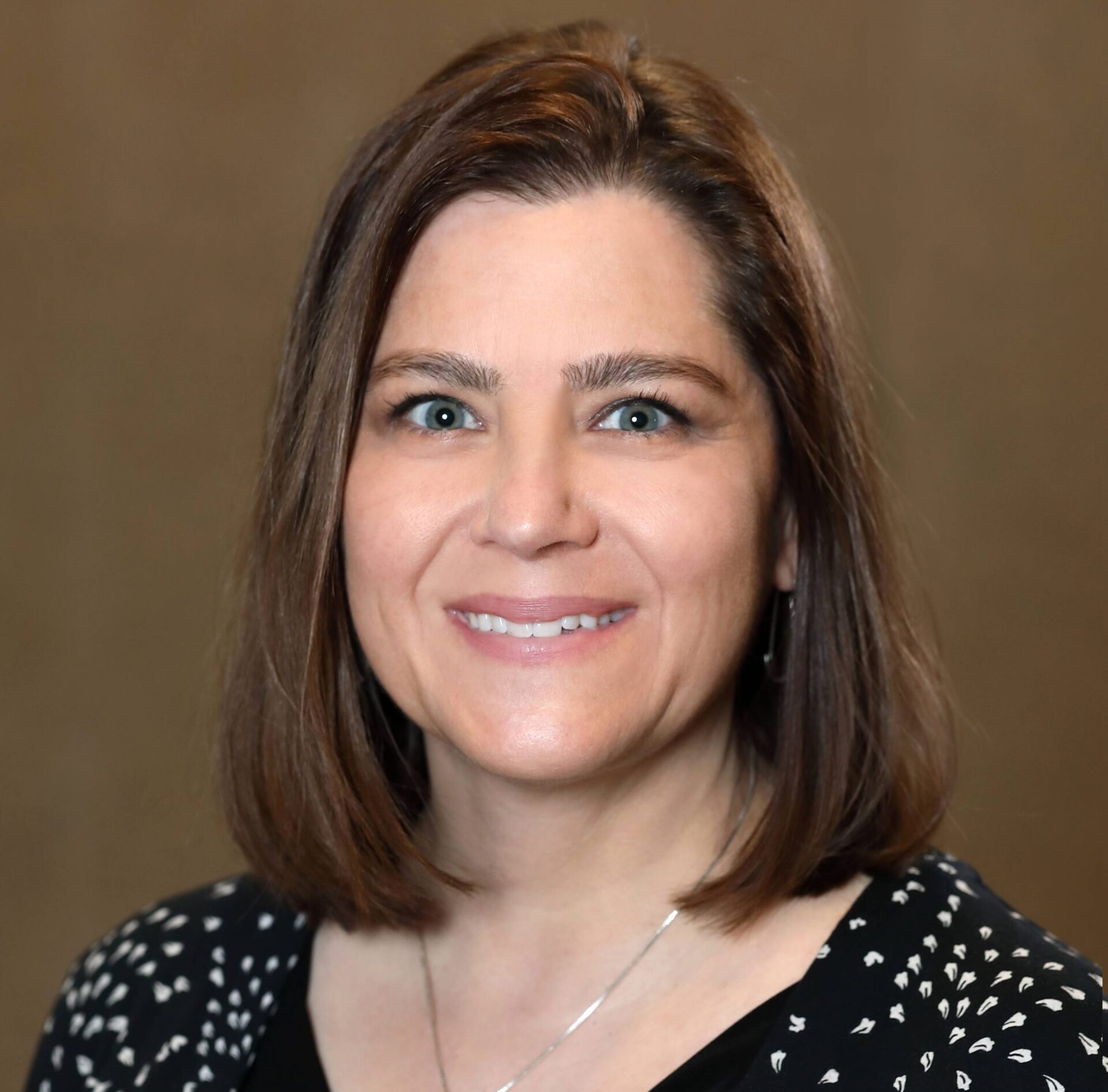
Kay Wanke
NIH / ODP & TRSP

Kay Wanke
NIH / ODP & TRSP
Deputy Director, Tobacco Regulatory Science Program (TRSP), National Institutes of Health (NIH)
Kay Wanke Ph.D., M.P.H. is the Deputy Director of the Tobacco Regulatory Science Program (TRSP) in the NIH Office of Disease Prevention. She co-founded TRSP which coordinates the trans-NIH collaborative effort with the FDA’s Center for Tobacco Products (CTP) to foster tobacco regulatory research, including co-leading the development of TRSP’s signature program for Tobacco Centers of Regulatory Science and spearheading the establishment of the collection of Tobacco Regulatory Research consensus measures available to researchers in the PhenX Toolkit. Dr. Wanke came to the NIH in 2001 as a Cancer Prevention Fellow at the National Cancer Institute, where she examined the behavioral genetics of smoking cessation. She then served as a program official at the National Institute on Drug Abuse (NIDA) in the Epidemiology Research Branch where she oversaw a research portfolio including tobacco and substance use, dependence, and genetic epidemiology. At NIDA she was the Project Coordinator for the Network on Exposures to Psychosocial Stress and Addictive Substances, a component of the Genes, Environment, and Health Initiative Exposure Biology Program, which funded the development of new technologies for accurate measurement of environmental exposures and lifestyle factors. Dr. Wanke also served as a health scientist administrator at the NIH Office of Behavioral and Social Sciences Research (OBSSR) where she coordinated and promoted behavioral genetic research, training, programs, and communication across the NIH Institutes. Dr. Wanke received her Ph.D. in clinical psychology from Southern Illinois University at Carbondale, including a pre-doctoral internship at the University of Alabama at Birmingham School of Medicine. She received her M.P.H. at the Harvard School of Public Health.
Kay Wanke Ph.D., M.P.H. is the Deputy Director of the Tobacco Regulatory Science Program (TRSP) in the NIH Office of Disease Prevention. She co-founded TRSP which coordinates the trans-NIH collaborative effort with the FDA’s Center for Tobacco Products (CTP) to foster tobacco regulatory research, including co-leading the development of TRSP’s signature program for Tobacco Centers of Regulatory Science and spearheading the establishment of the collection of Tobacco Regulatory Research consensus measures available to researchers in the PhenX Toolkit. Dr. Wanke came to the NIH in 2001 as a Cancer Prevention Fellow at the National Cancer Institute, where she examined the behavioral genetics of smoking cessation. She then served as a program official at the National Institute on Drug Abuse (NIDA) in the Epidemiology Research Branch where she oversaw a research portfolio including tobacco and substance use, dependence, and genetic epidemiology. At NIDA she was the Project Coordinator for the Network on Exposures to Psychosocial Stress and Addictive Substances, a component of the Genes, Environment, and Health Initiative Exposure Biology Program, which funded the development of new technologies for accurate measurement of environmental exposures and lifestyle factors. Dr. Wanke also served as a health scientist administrator at the NIH Office of Behavioral and Social Sciences Research (OBSSR) where she coordinated and promoted behavioral genetic research, training, programs, and communication across the NIH Institutes. Dr. Wanke received her Ph.D. in clinical psychology from Southern Illinois University at Carbondale, including a pre-doctoral internship at the University of Alabama at Birmingham School of Medicine. She received her M.P.H. at the Harvard School of Public Health.
- Email:kay.wanke@nih.gov
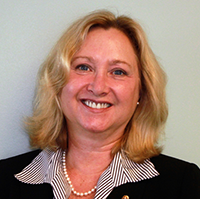
Bonnie Zima
UCLA

Bonnie Zima
UCLA
Associate Director, UCLA Center for Health Services & Society
Professor-in-Residence, UCLA Department of Psychiatry & Behavioral Sciences
Bonnie T. Zima, MD, MPH is Professor-in-Residence in the UCLA Department of Psychiatry and Behavioral Sciences, and Associate Director of the UCLA Center for Health Services and Society. Dr. Zima’s research is dedicated to improving the quality of child mental health care, with priority placed on children enrolled in Medicaid-funded outpatient programs and underserved, at risk child populations. Her research spans national pediatric hospitalization resource utilization and costs, validity of national quality measures, pediatric integrated care models, pediatric workforce development, and use of telehealth and mobile health technologies. She is Principal Investigator (PI) of a five-year study to pilot test integrated care models for children in two federally qualified health care centers in Chicago, an ongoing study that developed and pilot-tested MH2™, Mobile Health for Mental Health, a web-based application to optimize stimulant medication treatment for children with ADHD. Dr. Zima is also Co-Investigator on a three-year PCORI-funded randomized trial of a telehealth intervention to improve access to community-based child mental health programs from pediatric primary care clinics, a 5-year SAMHSA-funded intervention to improve pediatric work force training related to child complex trauma, lead child psychiatrist on the California Performance Outcomes Measures Study, and core PI for a recently funded five-year study examining the impact of child crisis intervention programs in 16 California counties. Her research has received all three national research awards from the American Academy of Child and Adolescent Psychiatry (AACAP).
Professor-in-Residence, UCLA Department of Psychiatry & Behavioral Sciences
Bonnie T. Zima, MD, MPH is Professor-in-Residence in the UCLA Department of Psychiatry and Behavioral Sciences, and Associate Director of the UCLA Center for Health Services and Society. Dr. Zima’s research is dedicated to improving the quality of child mental health care, with priority placed on children enrolled in Medicaid-funded outpatient programs and underserved, at risk child populations. Her research spans national pediatric hospitalization resource utilization and costs, validity of national quality measures, pediatric integrated care models, pediatric workforce development, and use of telehealth and mobile health technologies. She is Principal Investigator (PI) of a five-year study to pilot test integrated care models for children in two federally qualified health care centers in Chicago, an ongoing study that developed and pilot-tested MH2™, Mobile Health for Mental Health, a web-based application to optimize stimulant medication treatment for children with ADHD. Dr. Zima is also Co-Investigator on a three-year PCORI-funded randomized trial of a telehealth intervention to improve access to community-based child mental health programs from pediatric primary care clinics, a 5-year SAMHSA-funded intervention to improve pediatric work force training related to child complex trauma, lead child psychiatrist on the California Performance Outcomes Measures Study, and core PI for a recently funded five-year study examining the impact of child crisis intervention programs in 16 California counties. Her research has received all three national research awards from the American Academy of Child and Adolescent Psychiatry (AACAP).
- Email:bzima@mednet.ucla.edu
Program Evaluator

Mark Hansen
UCLA

Mark Hansen
UCLA
Senior Researcher, Nactional Center for Research on Evaluations, Standards, and Student Testing
Dr. Hansen's work focuses on the use of latent variable models (item response theory and cognitive diagnosis models, in particular) to support the design of assessments used in educational, psychological, and health-related research. This has included the development and evaluation of methods for estimating such models and for examining the extent to which they fit real data. Hansen is also interested in approaches for characterizing the validity and reliability of assessment-based judgments. Hansen currently serves as a senior researcher at CRESST.
Dr. Hansen's work focuses on the use of latent variable models (item response theory and cognitive diagnosis models, in particular) to support the design of assessments used in educational, psychological, and health-related research. This has included the development and evaluation of methods for estimating such models and for examining the extent to which they fit real data. Hansen is also interested in approaches for characterizing the validity and reliability of assessment-based judgments. Hansen currently serves as a senior researcher at CRESST.
- Email:markhansen@ucla.edu
